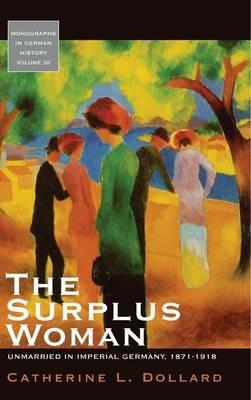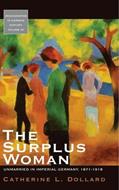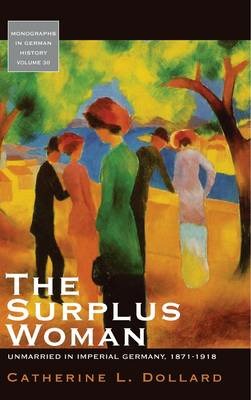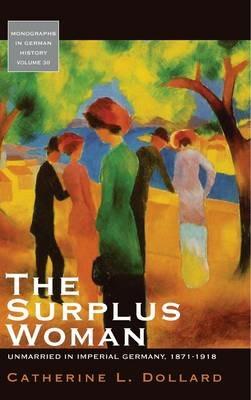The Surplus Woman: Unmarried in Imperial Germany, 1871-1918
The first German women's movement embraced the belief in a demographic surplus of unwed women, known as the Frauenuberschuss, as a central leitmotif in the campaign for reform. Proponents of the female surplus held that the advances of industry and urbanization had upset traditional marriage patterns and left too many bourgeois women without a husband. This book explores the ways in which the realms of literature, sexology, demography, socialism, and female activism addressed the perceived plight of unwed women. Case studies of reformers, including Lily Braun, Ruth Bre, Elisabeth Gnauck-Kuhne, Helene Lange, Alice Salomon, Helene Stoecker, and Clara Zetkin, demonstrate the expansive influence of the discourse surrounding a female surfeit. By combining the approaches of cultural, social, and gender history, The Surplus Woman provides the first sustained analysis of the ways in which imperial Germans conceptualized anxiety about female marital status as both a product and a reflection of changing times.
-
Autore:
-
Editore:
-
Collana:Monographs in German History
-
Anno:2012
-
Rilegatura:Paperback / softback
-
Pagine:272 p.
Le schede prodotto sono aggiornate in conformità al Regolamento UE 988/2023. Laddove ci fossero taluni dati non disponibili per ragioni indipendenti da Feltrinelli, vi informiamo che stiamo compiendo ogni ragionevole sforzo per inserirli. Vi invitiamo a controllare periodicamente il sito www.lafeltrinelli.it per eventuali novità e aggiornamenti.
Per le vendite di prodotti da terze parti, ciascun venditore si assume la piena e diretta responsabilità per la commercializzazione del prodotto e per la sua conformità al Regolamento UE 988/2023, nonché alle normative nazionali ed europee vigenti.
Per informazioni sulla sicurezza dei prodotti, contattare productsafety@feltrinelli.it



